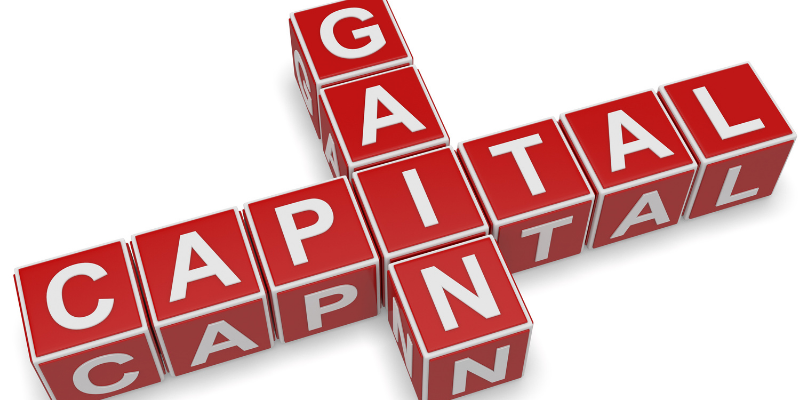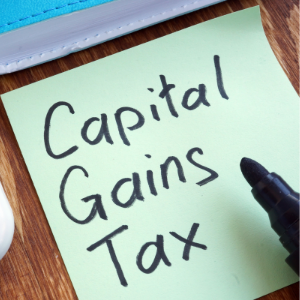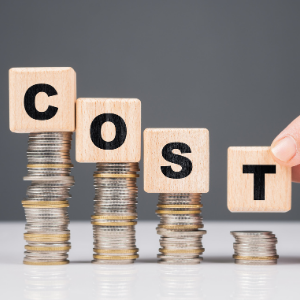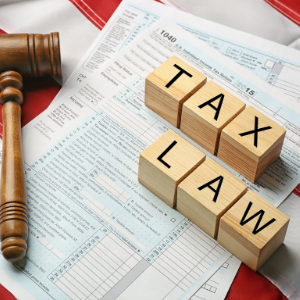
Understanding capital gains tax after selling your home in Virginia Beach, VA, is crucial for homeowners looking to maximize their profit while ensuring compliance with tax laws. This guide explores the intricacies of Virginia’s capital gains tax, enabling you to navigate potential liabilities and explore strategies for minimizing your taxable gains. Whether you’re a first-time seller or a seasoned property owner, gaining insight into these taxation principles can enhance your financial planning and help safeguard your home-selling profits. Discover essential information to make informed decisions and optimize your real estate investments in Virginia Beach.
Key Highlights
- Capital gains tax applies when selling a home in Virginia based on the profit over the adjusted basis.
- Federal and Virginia-specific exclusions can significantly reduce taxable gains from home sales.
- Virginia’s transfer taxes impact net profits and must be taken into account in tax planning.
- Documenting selling expenses and improvements can enhance your adjusted basis, reducing taxable gains.
- Consulting tax professionals is recommended for strategic planning and optimizing tax savings after the sale.
Understanding Capital Gains Tax in Virginia
When selling your home in Virginia, one of the most critical financial considerations is the capital gains tax. As Virginia’s real estate market continues to grow, understanding this tax is crucial for any homeowner. Capital gains tax represents the earnings acquired from the sale of an asset, such as a home, and understanding how it applies to real estate transactions in Virginia is essential. Here, we delve into what capital gains entail and how they specifically apply to your home sale, enabling you to navigate the complex tax landscape with ease and compliance.
What Are Capital Gains?

Capital gains refer to the profit made when you sell an asset for more than its purchase price. This gain is considered taxable income by the IRS and state authorities. Essentially, capital gains are divided into short-term and long-term categories. Short-term gains arise from the sale of an asset held for less than a year and are taxed at the same rate as your regular income tax. Conversely, long-term gains stem from an asset held for more than a year, enjoying typically lower tax rates. In real estate, determining the gain involves comparing the selling price of your home against the adjusted basis, which includes the initial purchase price plus any expenses incurred for improvements and selling costs.
Understanding the state tax implications for these gains in Virginia is vital for every property seller, as it influences the amount owed on your tax return. Many homeowners experience a significant shift in their finances due to capital gains tax after selling a property, especially if the property has appreciated substantially over time. Because gains directly affect the overall financial benefits of a home sale, knowing the difference between your adjusted basis and the final selling price can help gauge the exact tax implications of selling.
Virginia Beach, for instance, presents a dynamic market where property values can significantly increase over short periods, leading to greater potential gains. Hence, understanding these core concepts empowers homeowners to anticipate potential tax burdens and strategize effectively, from considering potential exclusion opportunities to understanding transfer taxes, ensuring a financially beneficial transition during the buying or selling process.
How the Capital Gains Tax Applies to a Home Sale in Virginia Beach, VA
When selling a home in Virginia Beach, VA, the applicability of capital gains tax becomes a crucial consideration. The primary factor determining the capital gains tax you might owe is whether you’ve made a profit on the sale of your home, termed as ‘gains’, and your home’s adjusted basis.
The adjusted basis includes the original purchasing cost, closing costs, and capital improvements made during ownership. If the sale price exceeds this adjusted basis, then a capital gain has been realized. Notably, the IRS allows for specific exclusions that significantly affect how this tax is calculated for residential properties.
For instance, individual sellers can exclude up to $250,000 of gains, while married couples filing jointly might exclude up to $500,000, assuming the home served as their primary residence for at least two out of the past five years. This exclusion means a substantial amount of the capital gains might not be taxable, relieving sellers of Virginia Beach homes from a potentially hefty tax burden on their tax returns.
Furthermore, state tax laws will also impact these calculations. Virginia has its own taxing stipulations, which must be considered alongside federal regulations. Understanding the nuances, such as additional state transfer taxes or any local fees associated with Virginia Beach property sales, is equally crucial. Preparing for selling costs, which can include property taxes, fees, and transfer taxes, also provides clear foresight into minimizing the tax impact. Sellers intending to maximize their net profits from real estate transactions need to calculate the post-sale implications strategically. Ensuring compliance with both IRS and Virginia state guidelines will optimize the financial advantage of the sale.
Educating oneself about eligibility for exclusion and deductions can empower Virginia Beach homeowners to leverage tax provisions more efficiently. Whether you’re selling a seaside property or a residential home inland, understanding these tax nuances ensures that you not only comply with the law but also strategically enhance your financial outlook after the sale.
Tax Implications of Selling Your Home in Virginia Beach
Selling your home in Virginia Beach involves several financial considerations, one of the most critical being the tax implications tied to capital gains. As a homeowner in this dynamic market, understanding how to calculate gains with a capital gains tax calculator and recognizing the factors that impact your tax return are essential. Whether you are navigating property taxes, dealing with IRS regulations, or planning strategically for closing and selling costs, a clear grasp of these elements ensures financial readiness and optimal outcomes from your home sale.
Calculating Gains from Your Home Sale in Virginia Beach

The calculation of gains from the sale of a home in Virginia Beach, VA, involves several steps; a good understanding of these terms and concepts will help determine the scope of possible tax obligations. Focusing on the ‘adjusted basis’ of the home, which is the original purchase price plus capital improvements and necessary closing costs incurred during your ownership, will be crucial. To determine the capital gains, one must consider both the adjusted basis of the home and its sale price. Anything above the sale price represents gains and may also be subject to capital gains tax.
In the competitive real estate market of Virginia Beach, the value of a property can increase significantly from the time it was first purchased. Appreciating values can result in capital gains, which can increase your tax liability come tax time. However, liability can be lessened by taking advantage of the exclusions granted by the IRS. For example, suppose you owned a home and used it as your principal place of residence for 2 out of the 5 years preceding the sale. In that case, you may be entitled to a tax exclusion of $250,000 for single taxpayers and $500,000 for married couples filing jointly, which is a tax exclusion that can be very beneficial. It is essential when considering the amount of capital gains that can be taxed, as it may lower the amount of tax you owe dramatically.
Another consideration is any fees and costs associated with the sale of the property. Commission fees, costs for advertising the property, and other home improvements done to sell the home may be included. Well-documented expenses may broaden the adjusted basis, which lowers the gain realizable for tax purposes. Determining which expenses of the sale are selling costs is a question that requires tax planning and being well-informed about expenses that can be claimed. Furthermore, what other state and local taxes may apply to the sale?
Virginia, for example, has additional real estate transfer taxes that affect your total gain from the sale. As a percentage of the sale price of your home, these taxes are taken for the real estate transfer tax, which, in turn, taxes your net profit. By knowing these things and knowing what to do, real estate in Virginia Beach can be sold profitably. This profit, in terms of tax and other regulations of the IRS and the state of Virginia, is what needs to be done with these pieces of information.
If you’re unsure how to handle taxes or just want to sell your house fast in Virginia Beach, Chesapeake, Norfolk, or Portsmouth, O'Neill Home Buyers offers a simple alternative. Their cash home-buying process allows you to close in days instead of months—avoiding costly repairs, staging, and prolonged market exposure. Plus, since they buy houses for cash in Virginia Beach and surrounding cities, you can walk away with a fair cash offer and peace of mind.
Factors Affecting Capital Gains Tax
When selling your home in Virginia Beach, several key factors determine how much capital gains tax you may owe. From how long you’ve owned and lived in the property to local tax laws and documentation accuracy, each element plays a vital role in shaping your final tax outcome.
Your ownership period and use of the home as a primary residence are significant determinants in calculating your capital gains tax. According to IRS guidelines, you may qualify for the home sale exclusion if:
- You’ve owned and lived in the property as your primary residence for at least two of the past five years before selling.
- You can exclude up to $250,000 in gains (for individuals) or $500,000 (for married couples filing jointly) from taxable income.
Meeting these requirements can substantially reduce or even eliminate your capital gains tax liability, making it one of the most potent tools for homeowners looking to sell profitably.
The federal tax rules are just one part of what can influence your total tax burden in Virginia. Besides property transfer taxes and other site-specific charges that can reduce your profits from the sale, Virginia also has a capital gains tax. Identifying potential deductions and staying compliant during each step of the transaction is made easier by Virginia’s real estate tax. Even a state’s policy regarding the calculation of the transfer tax can shift your profit.
When selling your home, having precise financial statements and supporting documents is key. Supporting documents for each sale component, such as the selling price, selling improvements, and selling expenses, should be obtained. Closing costs, repairs, and renovations are considered expenses that result in an increased adjusted basis of the home, thereby decreasing the taxable capital gain. Accurate documents are crucial for avoiding tax overpayments on the home and potential IRS audits. Recorded documents with arranged dates and details are transparent wounds that limit the deductions available.
Understanding the complete financial picture of the Virginia Beach real estate market is critical and must include both potential profits and losses. Realize that profits available don’t only come from a favorable purchase price; profit opportunities can also come from the home’s selling price and market timing. Sellers profit more when market timing and conditions favor the pricing strategy. An appraisal is integral to assessing market timing and pricing. Sellers underutilizing appraiser real estate pricing services equal lost potential taxable profit. A real estate certified appraiser’s strategy is invaluable in determining market pricing strategies and appraisal pricing; additionally, real estate advisors work closely to increase profit opportunities. Geopolitical considerations, available profits, and a favorable pricing strategy contribute to profit potential and profit in themselves.
Unlike other states in the USA, Virginia Beach real estate advisors understand the impact of a real estate transaction and available cash on net as partitioned between real estate profits and losses. A tactical cross-disciplinary approach taken by Virginia Beach real estate tax advisors with financial real estate experts, anticipate tax maneuvering strategy, and create opportunities for those who legally delay payment strategy.
For homeowners who don’t want to wait or deal with market uncertainty, O'Neill Home Buyers provides an ideal solution. They buy houses for cash in Norfolk, Chesapeake, Suffolk, and nearby areas, offering a fast, hassle-free sale that lets you bypass the traditional home-selling stress entirely.
Reducing Your Capital Gains Tax Liability
Reducing capital gains tax liability is a critical aspect of the home-selling process, especially for residents of Virginia Beach, VA. Navigating real estate taxes can be challenging, but understanding potential exemptions and strategic approaches can make a significant difference. From taking advantage of IRS exclusions to employing effective tax strategies, homeowners have several options to alleviate their tax obligations. This section examines available exemptions specifically for Virginia residents and explores strategies that sellers can use to minimize their gain tax liability while maximizing their financial benefits.
Exemptions and Deductions for Virginia Residents
This is particularly important for Virginia Beach homeowners selling their property, as considering the available exemptions and deductions can significantly reduce the capital gains owed. The IRS offers capital gains exclusions for taxpayers with incomes exceeding a certain threshold. These steps are essential for the homeowners. If the property is sold within five years and has been the primary residence for more than two years, substantial exemptions may be available. An individual filer can claim up to $250,000 of the taxes owed, while a married couple jointly filing can claim up to $500,000. This allows tax borrowers to enjoy a significant portion of their realized gains from selling the home.
Like other states, Virginia imposes federal exemptions and state laws that can impact taxation. Most importantly, such provisions, including state-specific taxation, may modify the level of these exemptions, thereby increasing your tax liabilities. Virginia taxation also imposes a state capital gains tax. Therefore, residents need to understand how their circumstances relate to the state capital gains tax. Policies that center on such exemptions require considerable expertise in the relevant statutes, including any state and federal tax treaty obligations.
Exemptions aside, certain deductions also help to lower the overall tax liability. Documented selling expenses, including the real estate agent’s commission, advertising, closing costs, and other selling expenses, may increase your adjusted basis, thus lowering the gain that is taxable to you. Furthermore, any improvement to the home that you own during the relevant term is added to the basis of the property. Such improvements may include value-adding renovations and repairs to the house, which ultimately lower the taxable amount on sale.
Most of all, the state transfer tax remains a significant concern for sellers in Virginia Beach. From a strategic perspective, having a working knowledge of the workings of such a tax and determining tax minimization strategies would be more beneficial. In Virginia, the taxes are referred to as transfer taxes, and taxes are paid on every sale of a property, which must be taken into account when determining the net gain of the sale. In this line of business, tracking state tax reforms and policy changes is crucial because they also impact the available deductions and the extent to which they are applied.
When other complexities of tax law are taken into account, it is advisable to seek the advice of a tax consultant specializing in the real estate sector in Virginia. Professional tax consultants will know how to put you in a better position to capture the available deductions and also learn how to save you taxes on sale proceeds. Also, you will be the first to know changes in tax legislation that have the potential to change your tax strategy or the actions you need to take for exemption eligibility. With the tax structure in Virginia Beach and a proper understanding of the exemptions and deductions available, a property owner will be in a position to manage capital gains tax.
Strategies to Minimize Gains Tax in Virginia Beach, VA

To begin with, you can minimize capital gains tax with planning and paying attention to the sequences of transactions. Such is the case with homeowners in Virginia Beach. Tax law compliance is essential, and so is maximizing the profit from a sale.
Determining when to sell the house and the improvements made to it is crucial in determining the amount of capital gains tax owed. If you pay attention to the market, you can sell your house at times when the prices are peaking and your gains are minimized. You can also sell the house immediately after making improvements to the property. Significant property improvements can also help. The more a homeowner spends on a home, the more these expenses increase the owner’s basis. An increase in basis translates to more profit, thus reducing the tax.
A 1031 exchange is a possible tax-deferral option for reinvesting in property. It allows homeowners and investors to postpone paying capital gains taxes, which are paid from the proceeds of the sale, until the sold property is replaced with another of like kind. Such an exchange is very beneficial for property owners in Virginia Beach. It allows for the purchasing of additional real estate while maintaining adequate cash flow and postponing tax payments, which are required to be paid on sale proceeds.
Implemented repairs and improvements can lessen the capital gain and the tax liability. Every improvement made, such as kitchen renovations and roofing upgrades, increases the adjusted basis, resulting in a lower taxable gain. It is often advisable to keep the proper documentation, such as receipts, contracts, and invoices. This documentation justifies the expenses, which can then be presented to the tax authorities for approval and verification.
One of the more prudent decisions in this case is to enlist the help of a tax specialist or a financial planner who is well-versed in Virginia’s real estate tax legislation. They can assist you in the following ways:
- Identify lost and overlooked deductions and exemptions.
- Propose the best period in which to sell your property to yield the highest return.
- Propound a strategy in which to sell your property that maximizes the tax-minimizing benefits.
They are capable of saving you a considerable sum of money while simultaneously avoiding embarrassing filing errors.
Virginia’s property regulations and transfer taxes are other variables that determine what you owe upon selling. Such charges, usually amounting to a fraction of the home’s selling cost, have a negative correlation with the overall profit. The more precise you are about the outcomes of a sale, the better. One way to achieve this is by having an effective tax strategy that anticipates the costs of ancillary legislation that will continue to underpin the changes to Virginia law after the sale. You can execute all the aforementioned strategies to mitigate exposure to capital gains tax. Approach tax policy with a solid understanding of the other variables, and you mitigate the capital gains tax, profit more, and enjoy a richer home-selling experience.
Navigating capital gains tax after selling your home in Virginia Beach requires understanding Virginia-specific regulations alongside federal requirements. By leveraging exemptions, such as the primary residence exclusion, and planning accordingly, homeowners can effectively minimize their tax liabilities. It’s advisable to consult with a tax professional for personalized guidance, ensuring compliance, and maximizing savings. Staying informed about updates in tax legislation can further aid in strategic decision-making. Ultimately, a well-informed approach can lead to a smoother, more profitable home-selling experience, allowing you to focus on your next investment or personal venture with confidence.
With a trusted reputation across Virginia Beach and nearby cities, O'Neill Home Buyers provides homeowners with fast, fair, and reliable home-selling solutions tailored to their unique needs. Contact us at (757) 578-1214 to get your offer!
Helpful Virginia Beach Blog Articles
- Virginia Beach, VA: Selling Shares of Your Home and Houses for Equity
- Capital Gains Tax After Selling Your Home in Virginia Beach, VA
- Can I Sell My House Below Market Value in Virginia Beach, VA?
- Can You Sell a House with Tenants in Virginia Beach, VA?
- How to Sell a House with Title Issues in Virginia Beach, VA
- How to Sell an Inherited House in Virginia Beach, VA
- How to Sell a Fire-Damaged House in Virginia Beach, VA
- Divorce Home Appraisal Costs in Virginia Beach, VA
- Selling a House With Foundation Problems in Virginia Beach, VA
- Paperwork for Selling a House by Owner in Virginia Beach, VA
- Selling a House with a Mortgage Work in Virginia Beach, VA
- For Sale By Owner in Virginia Beach, VA
- Do You Need a Deed to Sell a House in Virginia Beach, VA
- Selling a House with Solar Panels in Virginia Beach, VA

